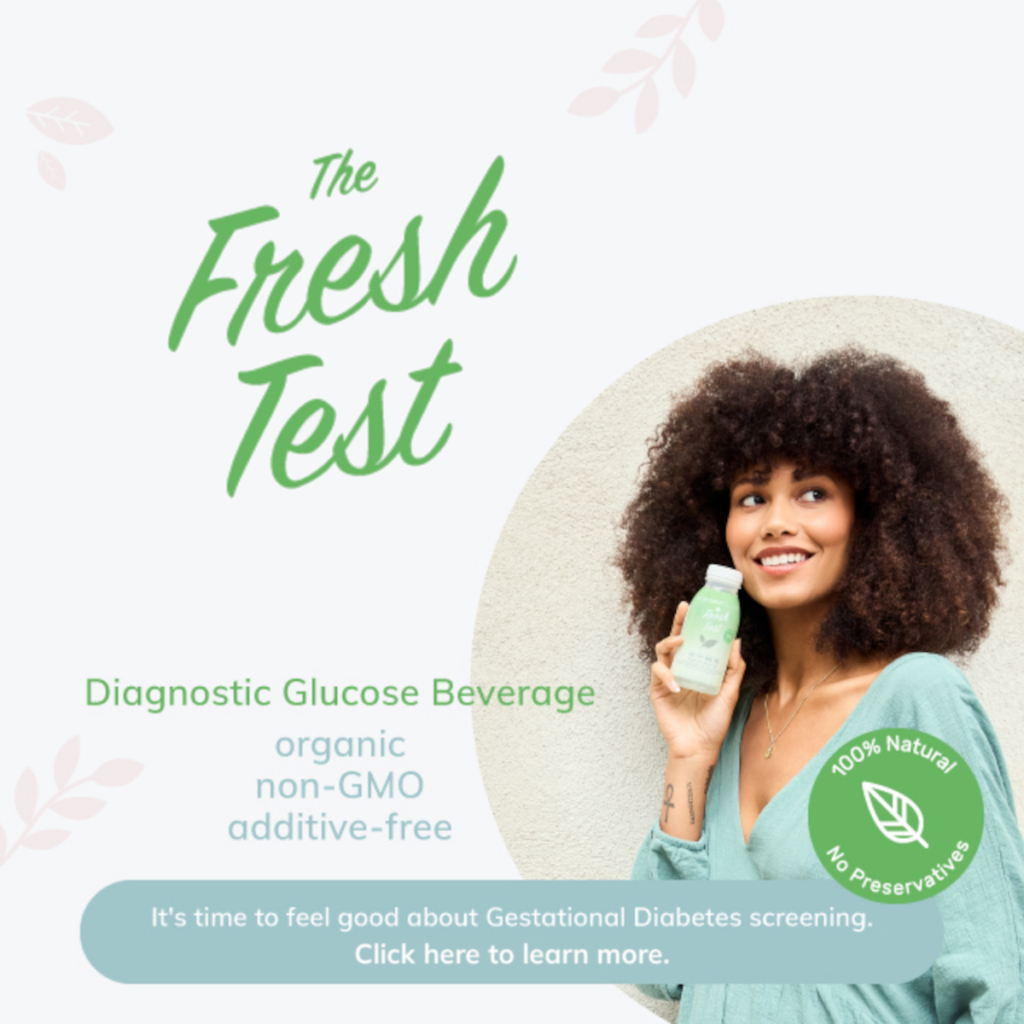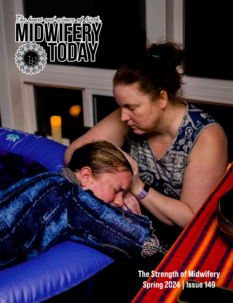
Marion’s Message: Preventing Problems Through Prenatal Care
Midwifery Today, Issue 148, Winter 2023
Join Midwifery Today Online Membership
Prenatal care can detect and treat many problems. Preeclampsia comes to mind. The classic signs of preeclampsia are high blood pressure and protein in the urine. It affects the placenta by reducing the blood flow and, unchecked, can lead to intrauterine growth retardation and fetal demise. Checking blood pressure and urinary protein are routine parts of prenatal care.
Preeclampsia can progress to eclampsia, which include the same signs and symptoms with the addition of convulsions. Expert medical and obstetrical care are critical to achieving a good outcome.
Prenatal care also deals with emotional and social situations, in addition to physical problems.
I was a homebirth midwife for many years. During that time I routinely did a visit in which the mother and I, and ideally the father or another support person she wanted present, would discuss hospital transport for treatment of complications. My preference was to do this visit around 18–20 weeks—when birth complications are usually still a distant prospect.
My emphasis was on the fact that most births are normal, but there can be certain complications, each of which has a medical/obstetrical treatment. Choosing a transfer of care to a specialist and/or transport to the hospital does not mean a “failed homebirth.”
This is a major point! A hospital birth should indicate a well-made choice for the health of mother and baby.
Once I saw a couple for an initial visit, the kind of visit where they came to see me to talk about their needs and wishes as well as my services. We could then make a mutual choice on whether my midwifery practice was the right choice for the pregnancy and birth.
They were in their 20s; she was about five years younger than her partner. They had been traveling throughout the country and had recently settled in our town. When we discussed hospital transfer/transport, the young man expressed the position that he would not go to a hospital for care himself, for any reason whatever, and that if he would die without hospital care that meant it was his time to die. He would just accept it. He was quite vocal and adamant about this, and felt the same about situations involving his partner and their baby.
I expressed that in my practice, I cared for women with the understanding that they would agree to hospital transport if certain complications arose. Since they were making decisions together, and she did not disagree with his statement, this meant I was not the right midwife for them.
I invited them to call me if either of them wanted to talk and provided a list of local homebirth midwives.
Several weeks later, when she was close to 28 weeks, I was happy to see her while shopping. She was looking quite well! After greetings I asked her if they had found a midwife for their birth.
“No,” she answered. “And I won’t be having the baby here. We’ve split up, and I’m returning to my home in the Midwest. My parents are taking me in until I get settled, and my mom and sisters are wonderful support for me.”
I think that one prenatal visit was important for this young person’s life. She realized that if she developed a complication—preeclampsia for example, but there are others—that was treatable with modern care but potentially fatal without, her partner would very probably not support her to see an OB specialist or go to the hospital. She made a decision that would affect the course her life would take.
That was the last time I ever saw her, but I have frequently thought about our visit and how it is an example of how prenatal care can affect the trajectory of pregnancy.
The midwife is a clinician, a counselor, an advisor, and so much more! Prenatal care can change lives and even save lives through helping childbearing families with their planning and decisionmaking.

 Marion Toepke McLean, CNM, attended her first birth as primary midwife in August 1971. She received her nursing degree from Pacific Lutheran University in 1966 and her midwifery and family nurse practitioner degree from Frontier Nursing Service in 1974. From 1976 through 2001 she did home, clinic and hospital births, while also working as a family nurse practitioner. In 1980 she taught a year-long program for local midwives, returning to Frontier Nursing Service to teach during the summer. She had a homebirth practice until 1985, when she went to work at the Nurse-Midwifery Birthing Service, a freestanding birth center. In June 2000 she completed a BA in International Studies at the University of Oregon, with concentrated studies on Mexico. Since 2002 she has worked in a reproductive health clinic and attended an occasional homebirth. She lives in Eugene, Oregon, and is a contributing editor to Midwifery Today.
Marion Toepke McLean, CNM, attended her first birth as primary midwife in August 1971. She received her nursing degree from Pacific Lutheran University in 1966 and her midwifery and family nurse practitioner degree from Frontier Nursing Service in 1974. From 1976 through 2001 she did home, clinic and hospital births, while also working as a family nurse practitioner. In 1980 she taught a year-long program for local midwives, returning to Frontier Nursing Service to teach during the summer. She had a homebirth practice until 1985, when she went to work at the Nurse-Midwifery Birthing Service, a freestanding birth center. In June 2000 she completed a BA in International Studies at the University of Oregon, with concentrated studies on Mexico. Since 2002 she has worked in a reproductive health clinic and attended an occasional homebirth. She lives in Eugene, Oregon, and is a contributing editor to Midwifery Today.














